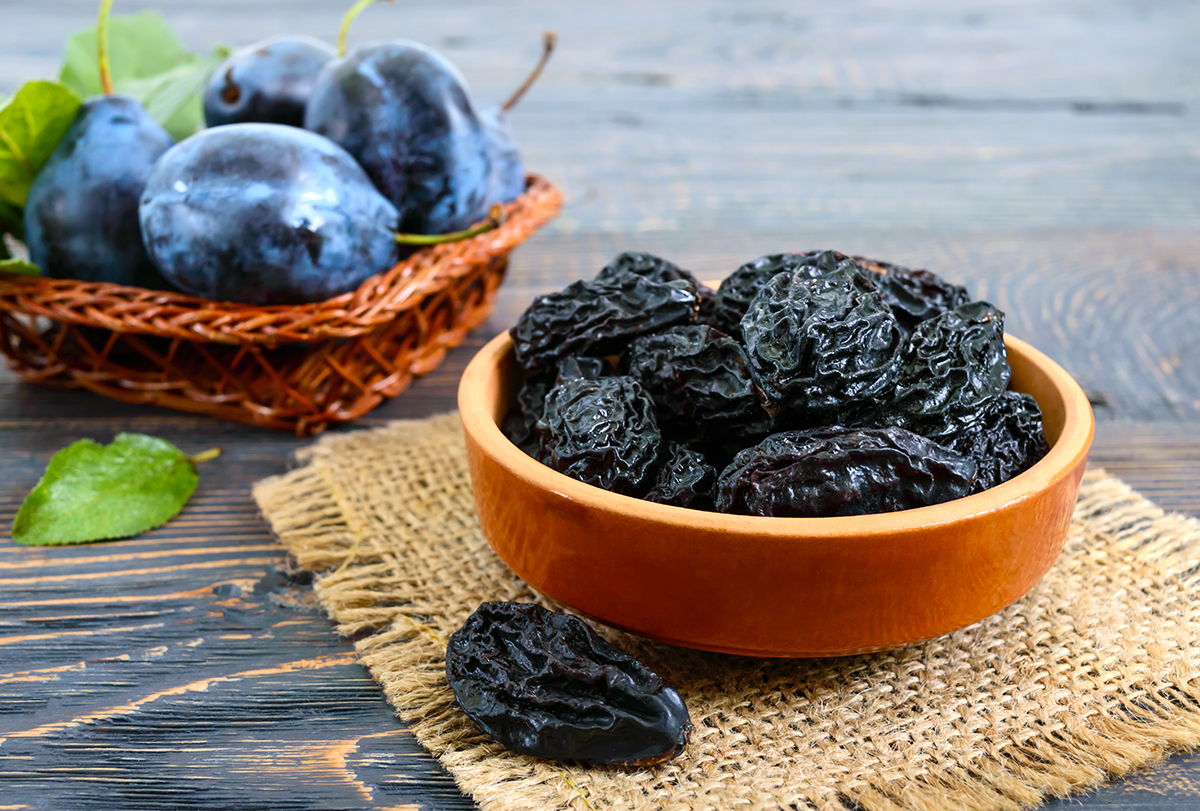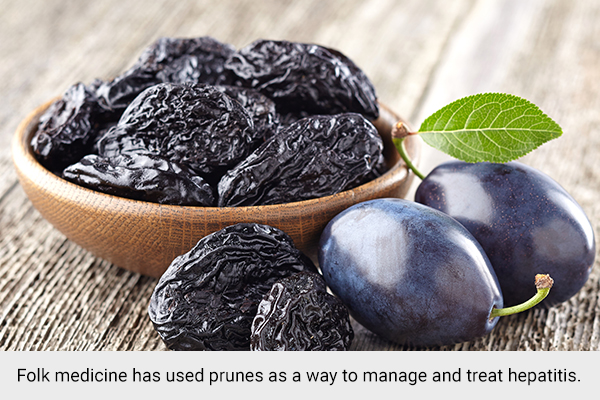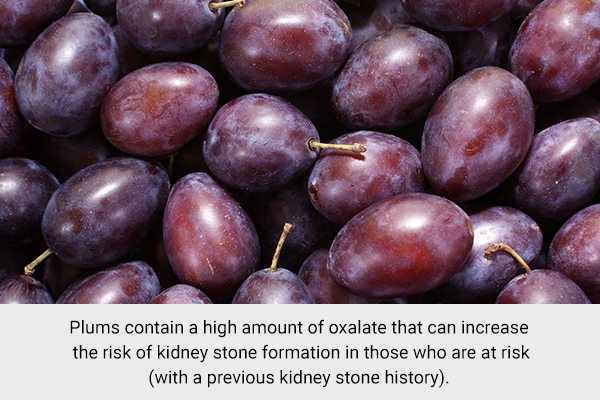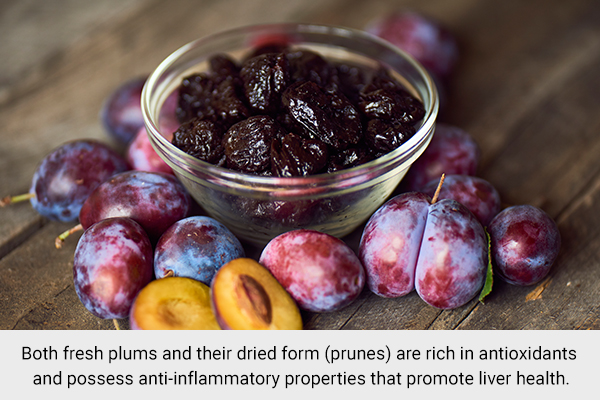In this article:
Aloo Bukhara is a Southeast Asian plum – a fruit in the same family as apricots and almonds. It is high in energy and has been consumed since ancient times as a snack and as a medicinal remedy against illnesses.

In fact, the dried variant, called prunes, holds antiaging properties due to its powerful antioxidant profile. (1)
Recent researches have also shown that plums have anti-inflammatory, antioxidant, and memory-boosting properties. (2)
But is Aloo Bukhara good for the liver?
According to multiple new studies, including Aloo Bukhara or plums in the diet can provide a healthy boost to your liver function!
Aloo Bukhara and Liver Health
Eating both the fresh plum fruit and its dried variety called prunes has been found to be beneficial for liver health.
1. Reduces inflammation
Inflammatory diseases of the gut such as inflammatory bowel disease (IBD) and ulcerative colitis significantly impact liver health through a mechanism called the gut-liver axis. If this is not treated, it can lead to the development of chronic liver diseases. (3)
In animal studies, antioxidants from plums showed a protective effect on the liver by reducing inflammation and reducing the risk of liver injury. (4)
2. Improves liver health

Folk medicine has used prunes as a way to manage and treat hepatitis.
In one study, patients were asked to eat 3–6 prunes (soaked overnight) first thing in the morning for 8 weeks, and results showed their liver enzymes had significantly reduced. (5)
Liver enzymes are an important marker of liver health. An elevation in these enzymes can indicate liver malfunction or disease. (6)
3. Reduces cholesterol in the liver
Prunes also possess high antioxidant properties. Multiple studies have found that fiber from fresh plums and prunes lowers cholesterol both in the liver and the blood. (7)
A lower cholesterol level can further lead to a reduction in the occurrence of atherosclerosis, which is the accumulation of fat in the blood vessels, which increases the risk of heart disease as well as raises blood pressure. (7)
Which Is More Beneficial for the Liver: Aloo Bukhara or Prunes?
While both fresh plums and prunes are beneficial for liver health, prunes have a higher concentration of vitamins and minerals than their fresh variety. They are also rich sources of polyphenols that have an increased antioxidant capacity than fresh plums. (8)
Newer studies have also reported the use of prunes to improve bone health. (8)(9) Evidence shows prunes as a better option; however, if you have access to fresh plums, they can be consumed as well.
Are There Side Effects to Eating Aloo Bukhara?

Plums do contain a high amount of oxalate that can increase the risk of kidney stone formation in those who are at risk (with a previous kidney stone history). (10)
Therefore, it is advisable to limit consumption to no more than 2 fresh plums and 4 dried prunes a day. Additionally, soaking prunes also reduces their oxalate content, (11) making them a better choice for people with a kidney stone risk.
Can consuming Aloo Bukhara (plums) help in the prevention of liver cancer?
A diet generally high in fruits and vegetables is important in reducing the risk of cancers. Plums and prunes, due to their high fiber content and ability to modulate gut microorganisms, have been found to reduce the risk of colon cancer, but not liver cancer. (12)
Will Eating Plums or Prunes Raise My Blood Sugar Levels?
Both plums and prunes are rich in fiber, and studies have found them to be a beneficial snack for people with type 2 diabetes.
Prunes are also low in the glycemic index (GI) and do not raise blood sugar instantly. In addition, they also improve insulin sensitivity, which aids in reducing blood sugar levels. (13)
Therefore, 3–5 prunes or 1–2 fresh plums can be a beneficial snack for diabetics.
Practical Takeaway

- Plums are known as Aloo Bukhara in Southeast Asian countries such as India and Pakistan.
- Both fresh plums and their dried form (prunes) are rich in antioxidants and possess anti-inflammatory properties that aid in liver health.
- They can reduce the risk of injuries or liver disease, while also reducing cholesterol that has accumulated in the liver.
- Eating 3–6 prunes or 1–2 fresh plums a day can be beneficial.
- Was this article helpful?
- YES, THANKS!NOT REALLY


